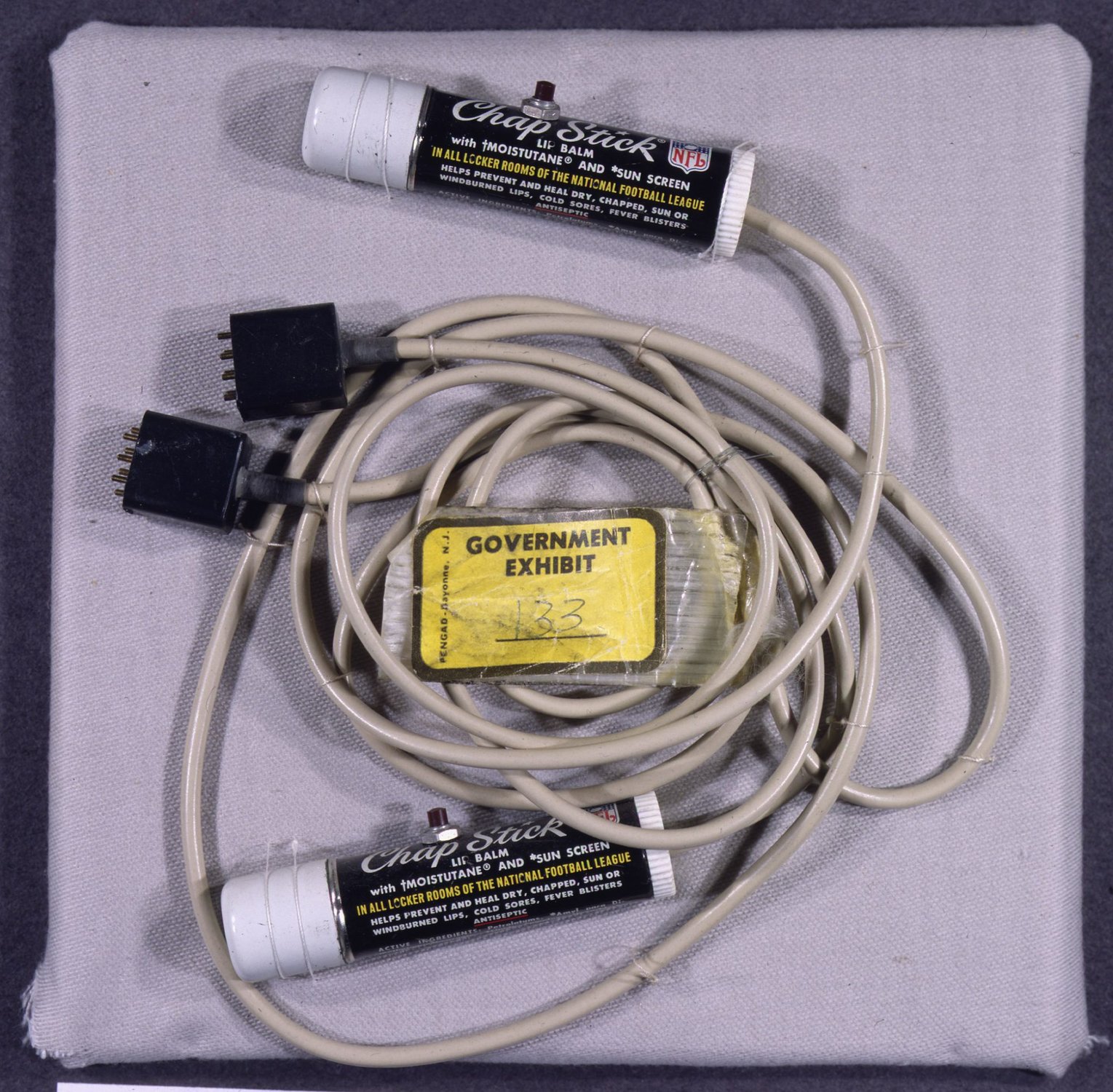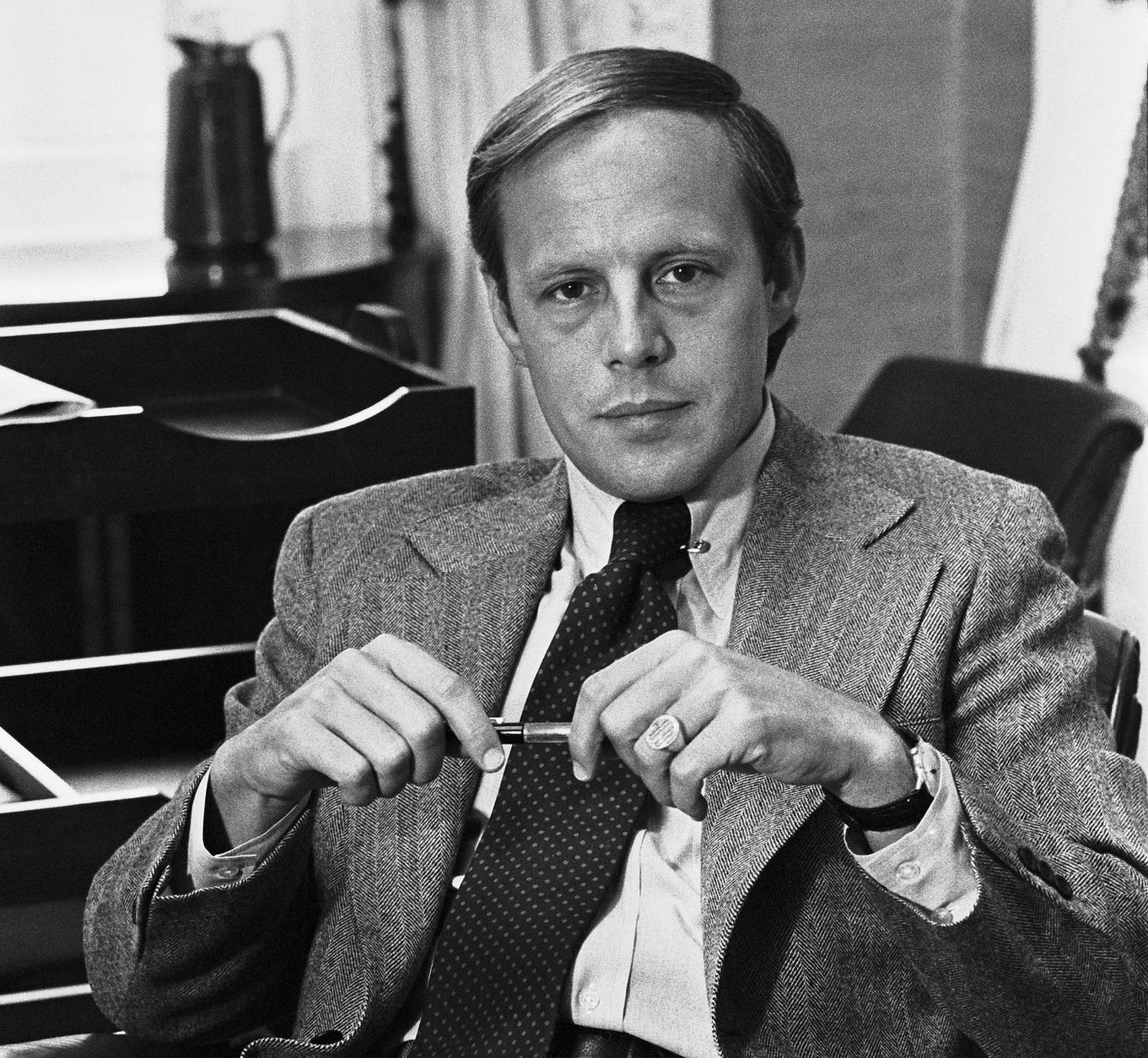
Richard Nixon boards Army One, departing from the White House after resigning the presidency following the Watergate Scandal in 1974. Photo courtesy of Wikimedia Commons.
If your pipes are leaking, you call a plumber. President Richard Nixon’s White House understood that maxim — except its plumbers carried black duffel bags and guns instead of monkey wrenches and PVC pipes.
FBI agents arrived at the offices of Dr. Lewis Fielding on July 20, 1971, asking for information about a patient named Daniel Ellsberg. Fielding refused, flatly telling the agents to speak with his lawyer. Two months later, a team infiltrated Fielding’s Beverly Hills, California, office through a window. Three men photographed all the files on Ellsberg they could find, while two men acted as lookouts. One stood outside Fielding’s home, another outside his office. After placing everything back in its proper place, they returned to their hotel room in the luxurious Beverly Hilton.

But it wasn’t the FBI that broke in; it was a unique arm of the White House’s “Campaign to Re-elect the President” — also known as CREEP. (Yes, really.) The White House Special Investigations Unit, known simply as the “plumbers,” performed all the nasty “black-bag” jobs. Nothing was off-limits, not even foreign embassies or the Democratic National Committee offices in Washington’s Watergate Office Building.
Plumbers had the dirty job of investigating and plugging leaks in Nixon’s White House; not leaks in the drains, but leaks in the information pipes, such as the Pentagon Papers — an unflattering Pentagon analysis of the Vietnam War leaked by RAND Corp. analyst Daniel Ellsberg to New York Times reporter Neil Sheehan in 1971.
The plumbers traced the Pentagon Papers leak back to Ellsberg and robbed his psychiatrist’s office, hoping the files contained compromising information. All they found was a paper Ellsberg wrote for the American Political Science Association called “Quagmire Myth and the Stalemate Machine.” Ellsberg said of the paper, “I alluded to classified information I’d seen, which obviously meant the Pentagon report.”

The plumbers were a relatively new organization. Nixon authorized “extraordinary action” within a week of the Pentagon Papers leak. Nixon asked John Ehrlichman, a former White House counsel, to supervise a secret scheme called “Project 16” with the purpose of preventing more embarrassing revelations about the Nixon administration.
Ehrlichman assigned his assistant, Egil “Evil Crow” Krogh, as head of the project, which was based in the basement of the Executive Office Building next door to the White House.
Ultimately, the plumbers were arrested after breaking into the headquarters of the Democratic National Committee at the Watergate Office Building on June 17, 1972 — an event that would likely have led to Nixon’s impeachment, had he not resigned in 1974. After Nixon’s departure, the White House quietly disbanded the Special Investigations Unit. The mastermind behind the scheme — G. Gordon Liddy — was arrested and sentenced to a 20-year prison term for conspiracy, burglary, and illegal wiretapping. He spent only four and a half years behind bars.

According to Liddy’s autobiography, the point of the Watergate break-in was “to find out what [Democratic National Chairman Lawrence] O’Brien had of a derogatory nature about us, not for us to get something on him or the Democrats.”
In secretly recorded White House conversations, John Dean — former White House counsel — told Nixon about a personal encounter with Liddy.
“So I came over and Liddy laid out a million dollar plan that was the most incredible thing I have ever laid my eyes on: all in codes, and involved black bag operations, kidnapping, providing prostitutes, uh, to weaken the opposition, bugging, uh, mugging teams,” Dean said.
Later in the conversation, Dean added, “I told [Liddy] ‘These are not the sort of things that are ever to be discussed in the office of the Attorney General of the United States’ — where he still was — ‘and I am personally incensed.’”
Nixon ultimately blamed Dean for orchestrating the plumbers’ Chilean embassy burglary on May 12, 1972, which was supposed to look like a CIA job. According to the White House tapes, the plumbers also hoped to blame the Watergate break-in on the CIA. The Chilean embassy burglary was intended to help fabricate a pattern of CIA malfeasance.
HBO is currently filming a five-part series, The White House Plumbers, starring Woody Harrelson and Justin Theroux.
Read Next:

Lauren Coontz is a former staff writer for Coffee or Die Magazine. Beaches are preferred, but Lauren calls the Rocky Mountains of Utah home. You can usually find her in an art museum, at an archaeology site, or checking out local nightlife like drag shows and cocktail bars (gin is key). A student of history, Lauren is an Army veteran who worked all over the world and loves to travel to see the old stuff the history books only give a sentence to. She likes medium roast coffee and sometimes, like a sinner, adds sweet cream to it.
BRCC and Bad Moon Print Press team up for an exclusive, limited-edition T-shirt design!
BRCC partners with Team Room Design for an exclusive T-shirt release!
Thirty Seconds Out has partnered with BRCC for an exclusive shirt design invoking the God of Winter.
Lucas O'Hara of Grizzly Forge has teamed up with BRCC for a badass, exclusive Shirt Club T-shirt design featuring his most popular knife and tiomahawk.
Coffee or Die sits down with one of the graphic designers behind Black Rifle Coffee's signature look and vibe.
Biden will award the Medal of Honor to a Vietnam War Army helicopter pilot who risked his life to save a reconnaissance team from almost certain death.
Ever wonder how much Jack Mandaville would f*ck sh*t up if he went back in time? The American Revolution didn't even see him coming.
A nearly 200-year-old West Point time capsule that at first appeared to yield little more than dust contains hidden treasure, the US Military Academy said.












